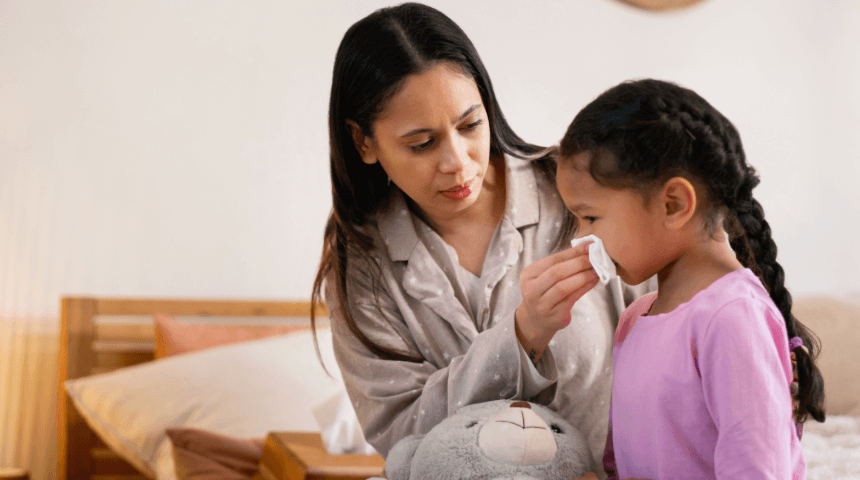Talking with Your Teen About STDs
It’s often difficult for parents to talk with their teens about sex, but it is a vital conversation to have. Just as important as discussing sex itself is talking about how to prevent sexually transmitted diseases (STDs).
Although fewer teens are having sex and with fewer partners, those who do have sex are less likely to use condoms, according to the Centers for Disease Control and Prevention (CDC). In 2007, 61.5 percent of sexually active teens used condoms, but in 2017, that percentage fell to 53.8 percent.
Using condoms helps prevent the spreading of HIV and other sexually transmitted diseases. And, the CDC says, young people 15 to 24 years old account for half of all STD infections. Ironically, as the number of teens who are sexually active has decreased and as HIV has become increasingly treatable, less emphasis has been placed on using protection against sexually transmitted diseases. As a result, rates of gonorrhea and syphilis are on the rise.
When to Have the STD Talk
Parents can give their teens the tools to help protect their health by talking openly about STDs.
It’s important to make sure your teen knows that most STDs have no symptoms. Your teen or their partner might not know they have a disease, and that disease can spread even while they look and feel healthy.
Don’t wait until your teen is in a relationship to have this talk. Middle school is an ideal time to start this talk because most teens aren’t sexually active and you can have a conversation about healthy relationships as a whole, with protection being part of it. You can even couch it as “abstinence is best, but if you do at some point have sex, it’s important to use protection every time.”
While both you and your teen may be uncomfortable with this topic, the best way to communicate is to be nonjudgmental and nonthreatening. Despite your efforts to approach the topic delicately, your teen will likely be embarrassed and may act like they don’t want to hear it, but they need to. Embrace the awkwardness and find a quiet time when you’re alone with them, such as on a long car ride, to initiate the talk.
What to Say
The conversation with your teen can be started many ways. Use a song that is on the radio, a relevant movie scene, current event or conversation that can segue to a discussion about relationships. If your child is in a relationship, ask, “How are you going to protect yourself?” and be open to listening, not lecturing.
Emphasize that using condoms is like wearing a seatbelt; while it’s not 100 percent effective at prevention, it is a huge help. Untreated, STDs can have lifelong effects, such as infertility. Infection with gonorrhea, chlamydia and trichomonas, all preventable with condom use, create inflammation on the cervix, which can increase the chance of catching or transmitting HIV, the disease that causes AIDS. If you are aware your teen is sexually active, be sure to bring them to their physician for screening for STDs. It’s important to treat them early to prevent the spread of infection or complications from the infection.
While you want to stress the seriousness of preventing STDs, make sure your message is one of caring. Tell your teen that you want them to be healthy, and that if they’re going to be sexually active, they need to use protection.
Practicing Safe Sex
Make condoms available in your home. Teens are much more likely to use them if they’re available because they feel uncomfortable buying them. You’re not encouraging sex, but facilitating safety. Make it easy.
Teens may feel uncomfortable talking about condoms with their partner, but approach it as a way to protect and respect their own body and their partner’s body. Help your teen practice the language to use to have that conversation, perhaps role playing with them and helping them use phrases like “this is important to keep both of us healthy.”
If you need to learn more about how to talk with your teen about STDs, the CDC, the U.S. Department of Health and Human Services Healthfinder website and the National Center for Health Research offer a wealth of ideas to prepare you for this conversation.
Talking about condoms will not increase the likelihood of your teen having sex; just the likelihood that your teen will have safe sex.
Are You Interested in Learning More?
Sign up for our e-newsletter for more tips and best practices from pediatricians.
Sign Up Here









